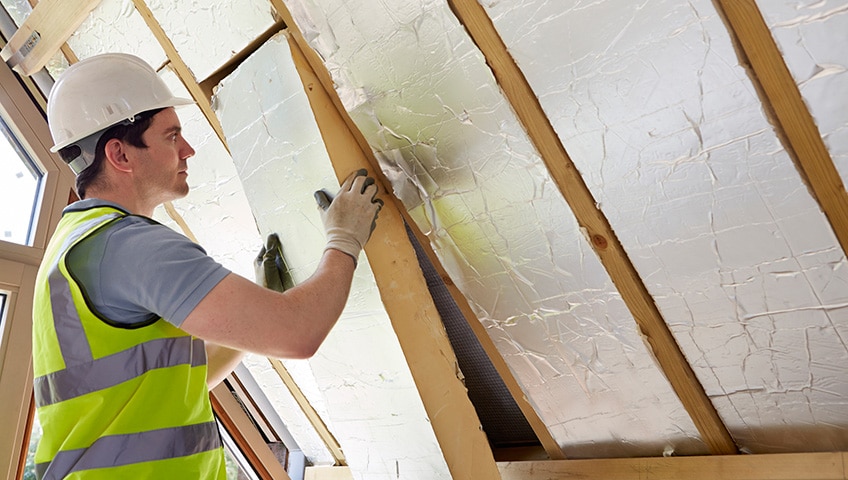What Exactly Is Insulation and How Does It Work?
You’ve come to the perfect site whether you want to insulate your new house or re-insulate your existing one. Here, we will explain how it works to protect your house and keep you comfortable all year. Insulation is any substance that is used to fill the voids in your home to minimize heat transfer by reflection and/or absorption. Insulation comes in a variety of forms, including acoustic insulation, electrical insulation, and thermal insulation. Thermal insulation is the type of insulation that improves energy efficiency and comfort levels in your house. Thermal insulation is described as any product that reduces or slows heat loss or gain by acting as a barrier between temperature-sensitive regions.Several types of thermal insulation from insulation contractor, also provide some soundproofing.

What Is the Process of Insulation?
- Heat naturally travels from warmer to colder locations. Heat transfers straight from warm places (such as your house) to outside and unheated spaces in the winter. Heat transfers from the heated exterior to the colder inside of your home throughout the summer.Insulation done by an insulation contractor works by reducing the flow of heat from a hot environment to a colder environment.
- Insulation improves your home’s energy efficiency by limiting the amount of heat that escapes from it in the winter (containing the heat and keeping the house warm) and protecting it from becoming excessively warm in the summer (retaining the cold air and keeping the interior comfortable).
- Insulation, when correctly placed, may improve your home’s comfort by keeping a steady, uniform temperature from room to room. Insulation will also improve your home’s energy efficiency, cutting your heating and cooling expenditures dramatically.
Where Can You Put Insulation?
- Insulation for attics: Attics are ideal sites to insulate because they are one of the primary causes of energy loss in homes.
- Wall insulation: Walls are another major source of energy loss and must be insulated if your home is to be more energy efficient. The walls, like the attic, will almost certainly require more than one form of insulation.
- Basement insulation: Even though your basement is unfinished, it has a lot of energy-saving potential. A properly installed basement insulation system may save you hundreds of dollars every year.
- Crawl space insulation: Like basement insulation, crawl space insulation is sometimes overlooked. Of all, not everyone utilises their crawl space on a regular basis, but crawl space insulation can assist prevent heat from escaping or leaking into your home.